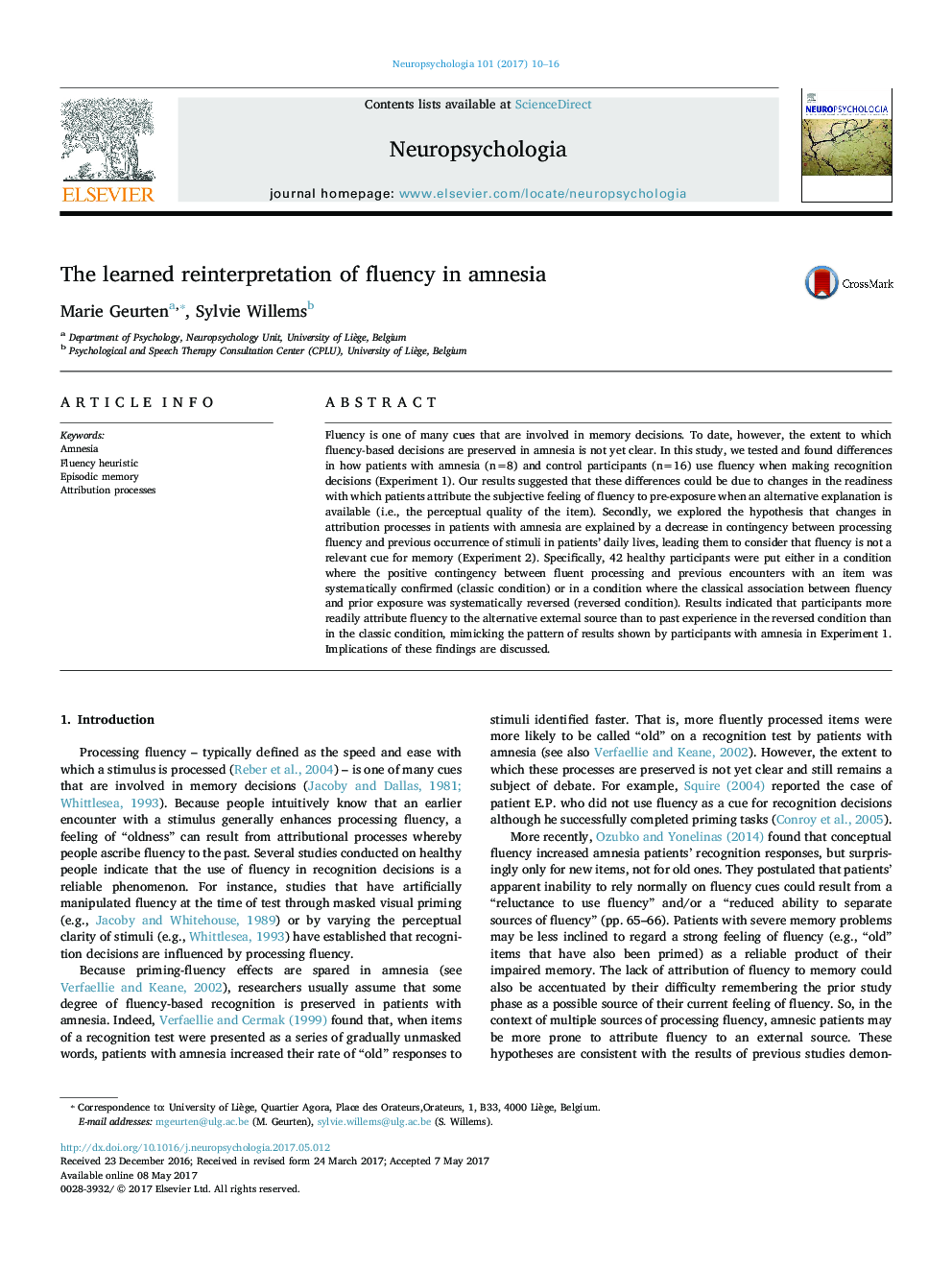| کد مقاله | کد نشریه | سال انتشار | مقاله انگلیسی | نسخه تمام متن |
|---|---|---|---|---|
| 5045161 | 1475554 | 2017 | 7 صفحه PDF | دانلود رایگان |
- We tested the fluency heuristic in patients with amnesia and control participants.
- Differences due to changes in how patients attribute fluency were found.
- We explored one factor that could explain changes in attribution processes in amnesia.
- Patients' underuse of fluency does not result from a real inability to rely on it.
- But likely results from a learned reinterpretation of fluency as a poor cue for memory.
Fluency is one of many cues that are involved in memory decisions. To date, however, the extent to which fluency-based decisions are preserved in amnesia is not yet clear. In this study, we tested and found differences in how patients with amnesia (n=8) and control participants (n=16) use fluency when making recognition decisions (Experiment 1). Our results suggested that these differences could be due to changes in the readiness with which patients attribute the subjective feeling of fluency to pre-exposure when an alternative explanation is available (i.e., the perceptual quality of the item). Secondly, we explored the hypothesis that changes in attribution processes in patients with amnesia are explained by a decrease in contingency between processing fluency and previous occurrence of stimuli in patients' daily lives, leading them to consider that fluency is not a relevant cue for memory (Experiment 2). Specifically, 42 healthy participants were put either in a condition where the positive contingency between fluent processing and previous encounters with an item was systematically confirmed (classic condition) or in a condition where the classical association between fluency and prior exposure was systematically reversed (reversed condition). Results indicated that participants more readily attribute fluency to the alternative external source than to past experience in the reversed condition than in the classic condition, mimicking the pattern of results shown by participants with amnesia in Experiment 1. Implications of these findings are discussed.
Journal: Neuropsychologia - Volume 101, 1 July 2017, Pages 10-16
